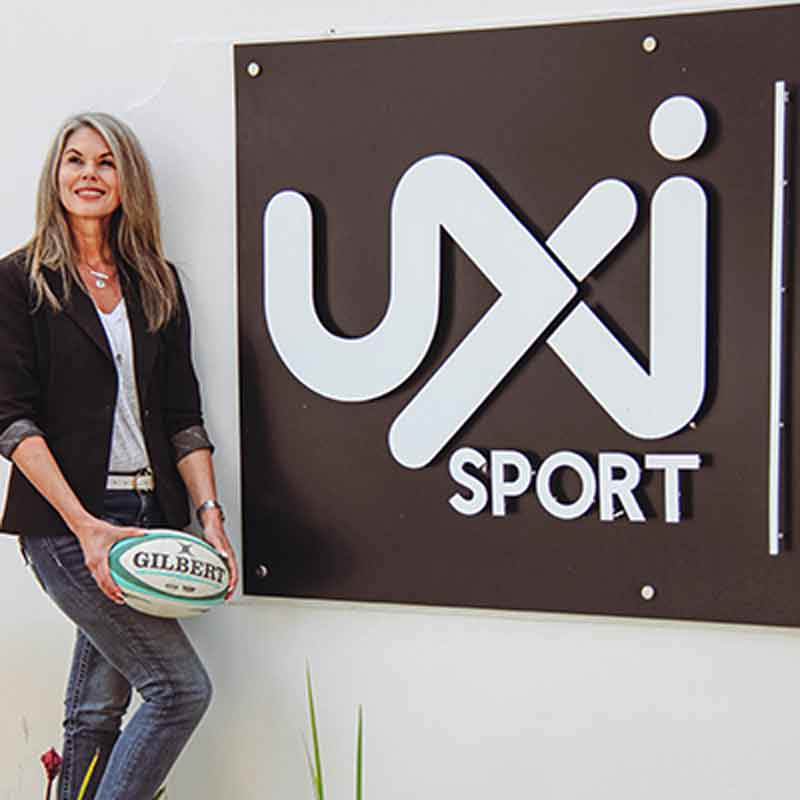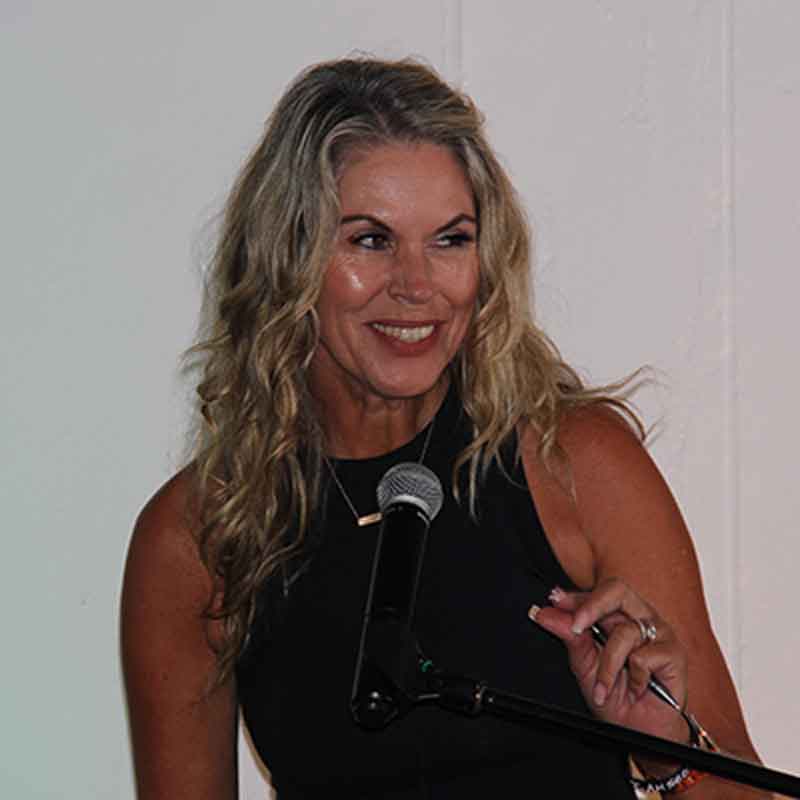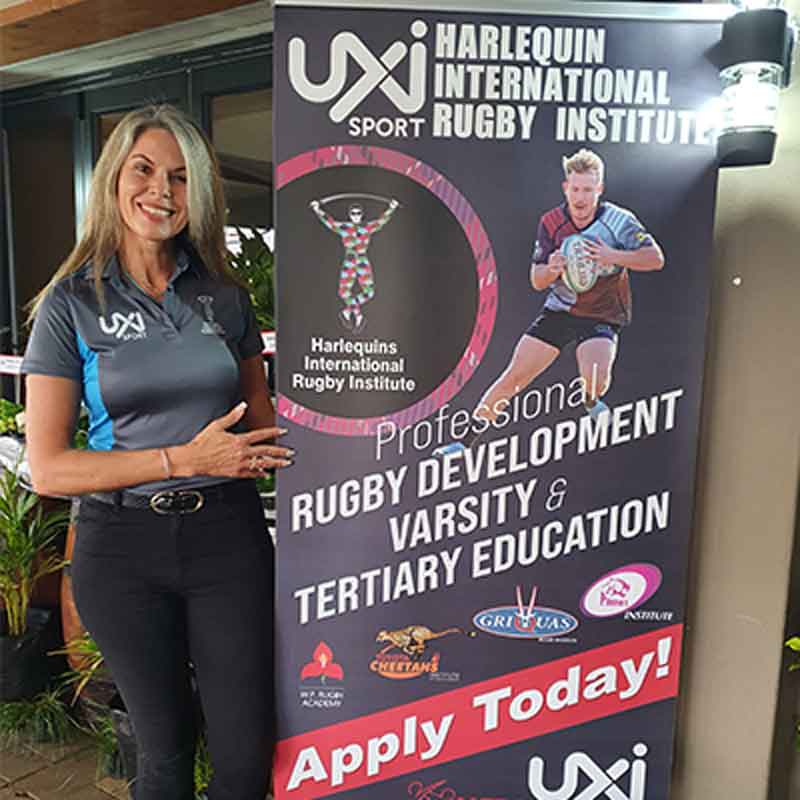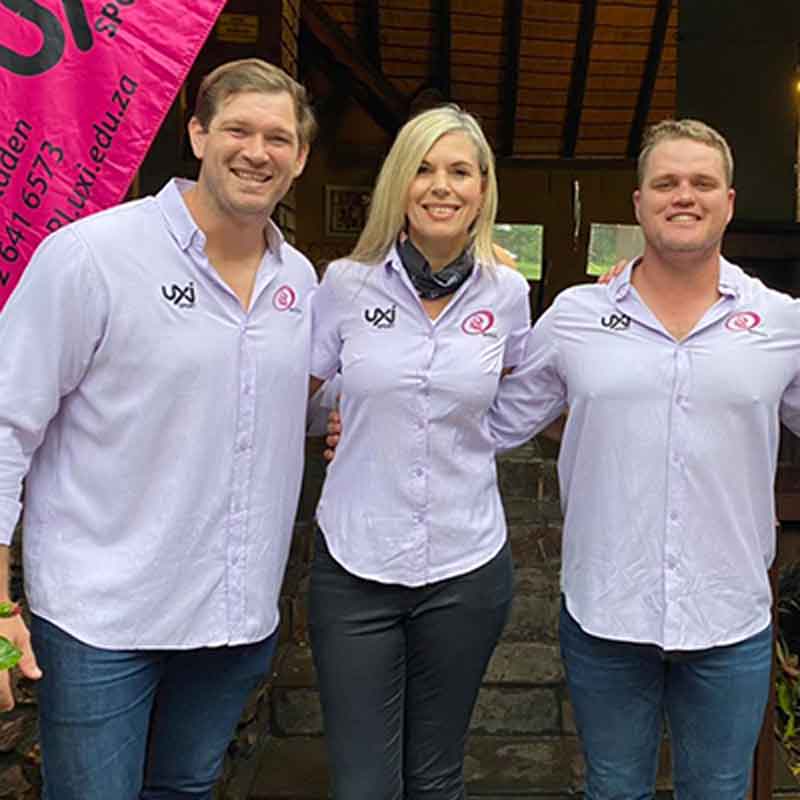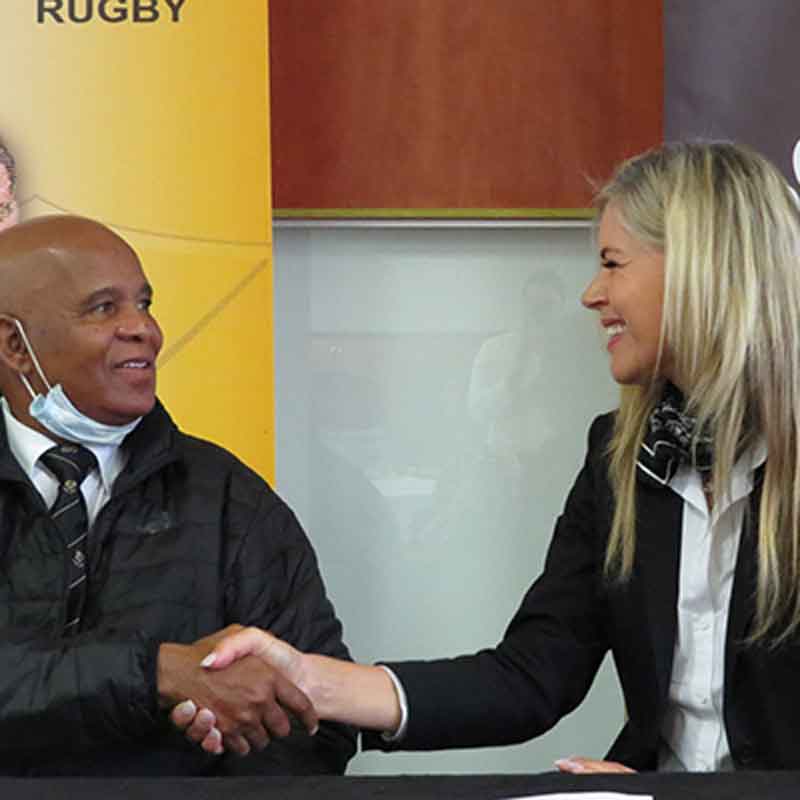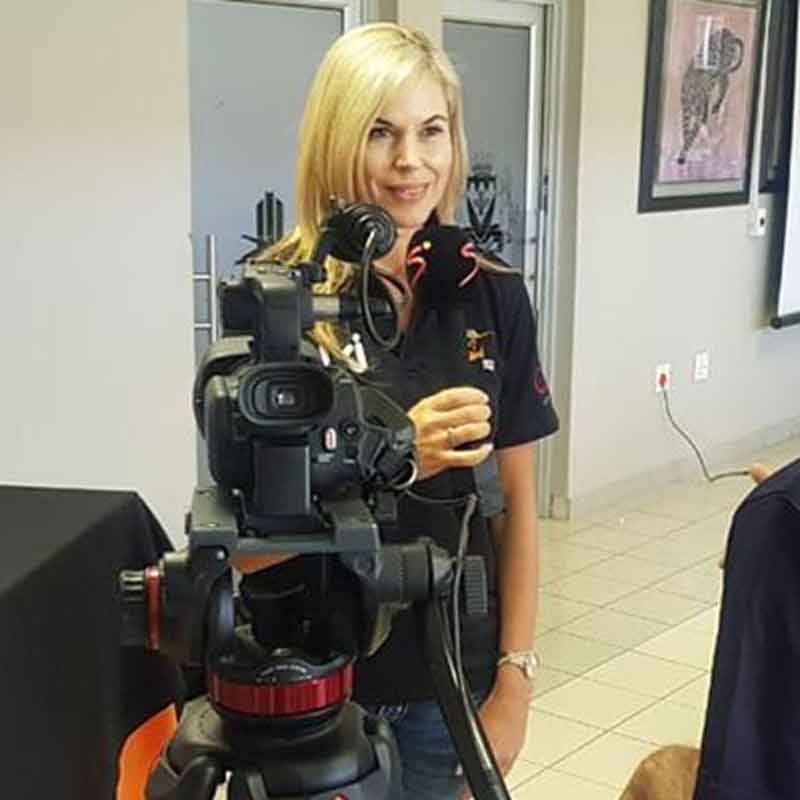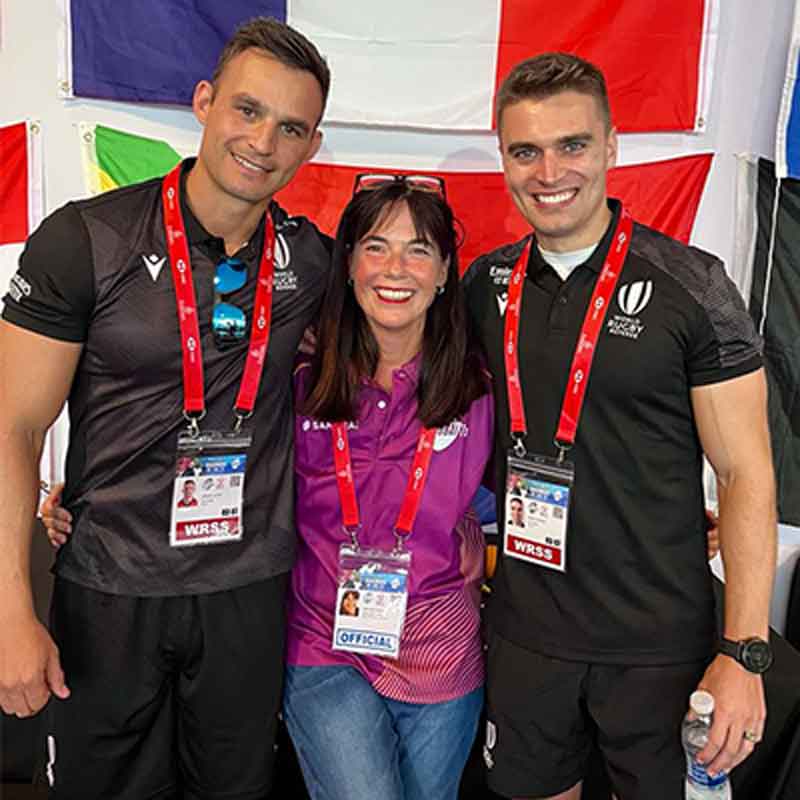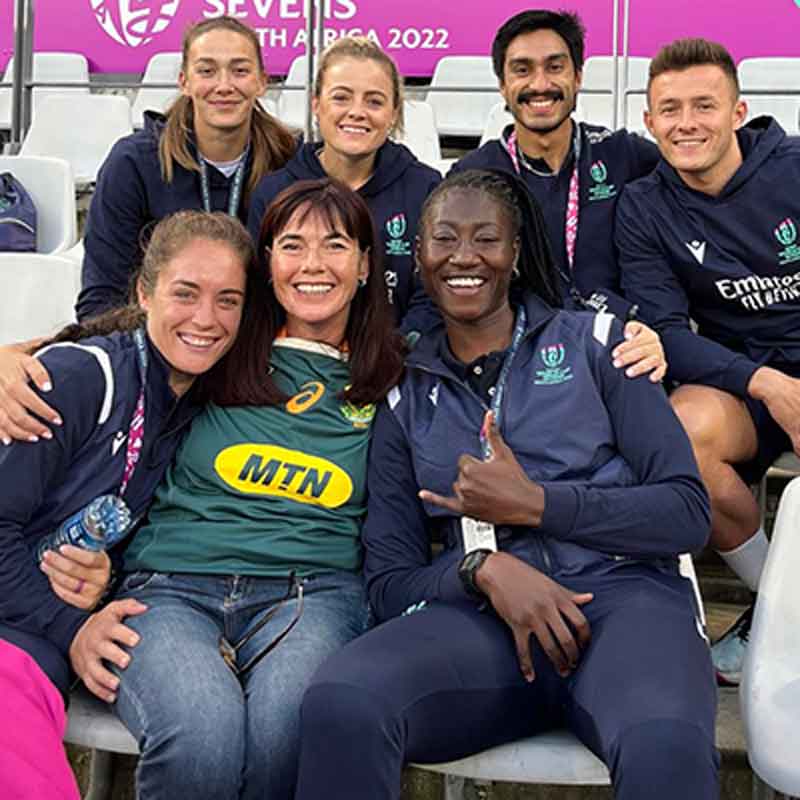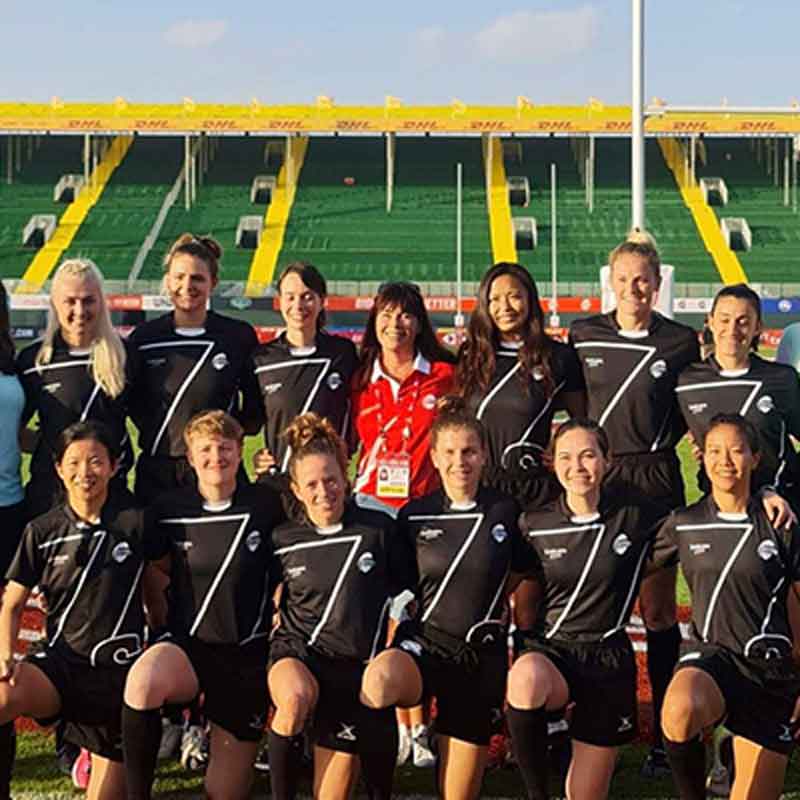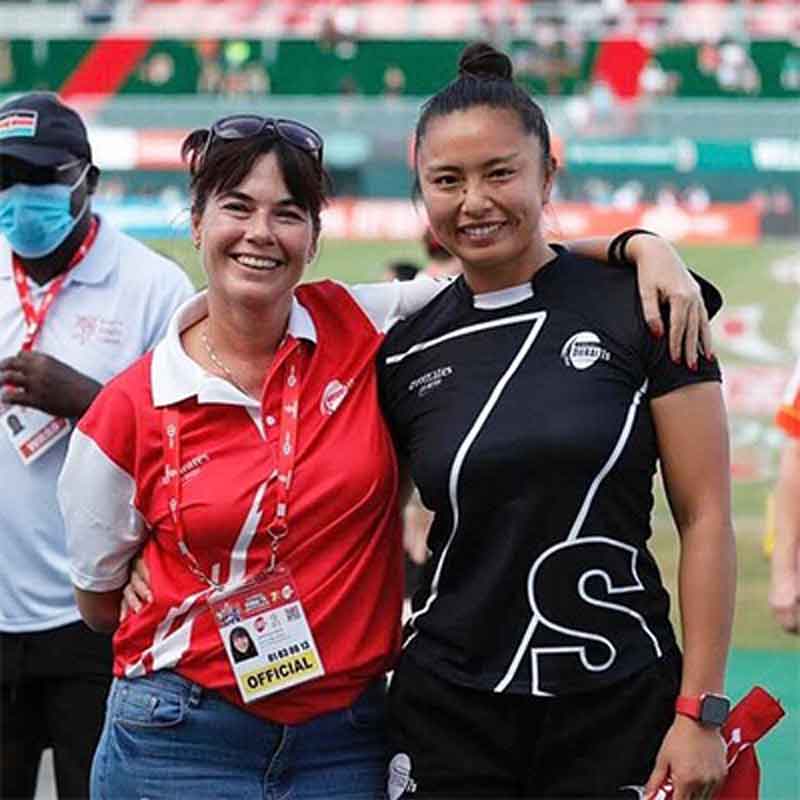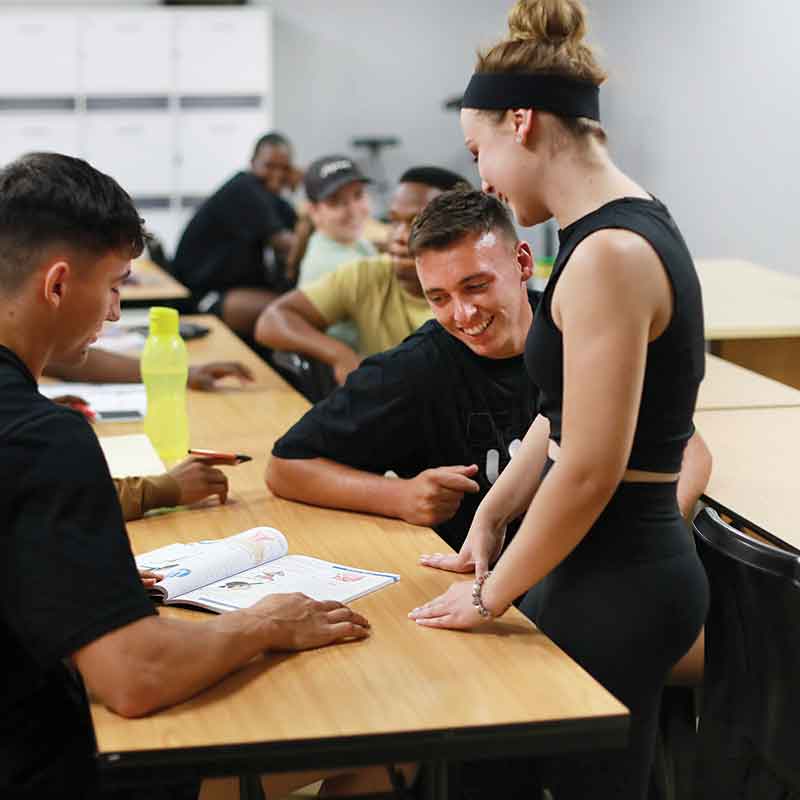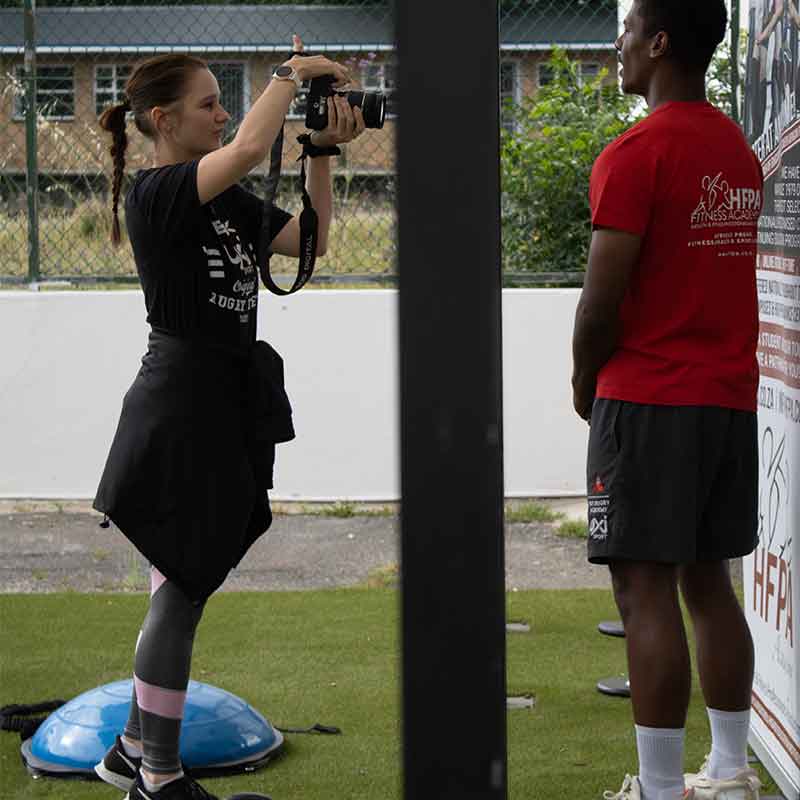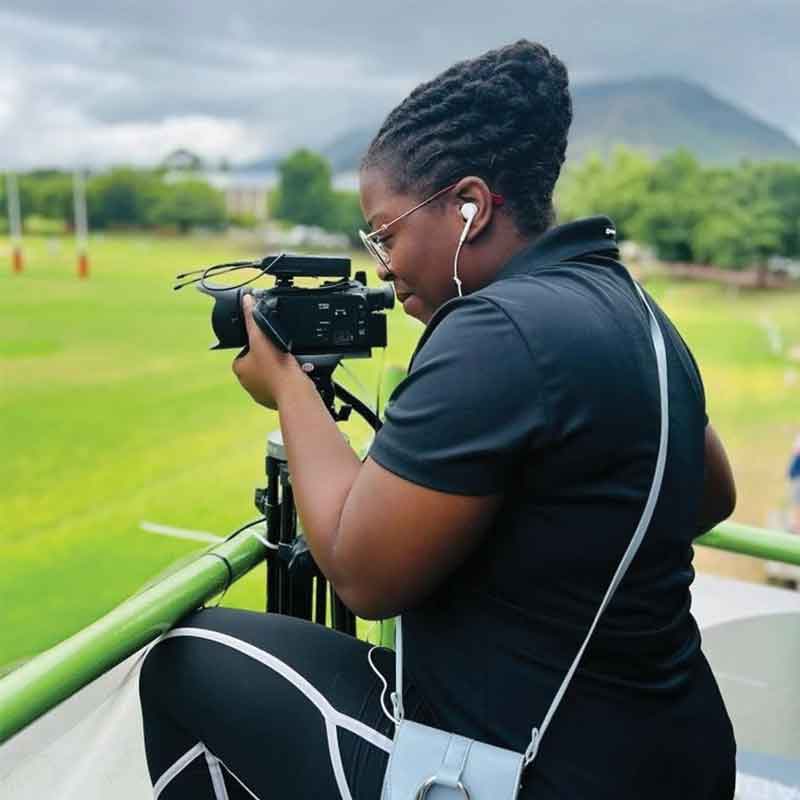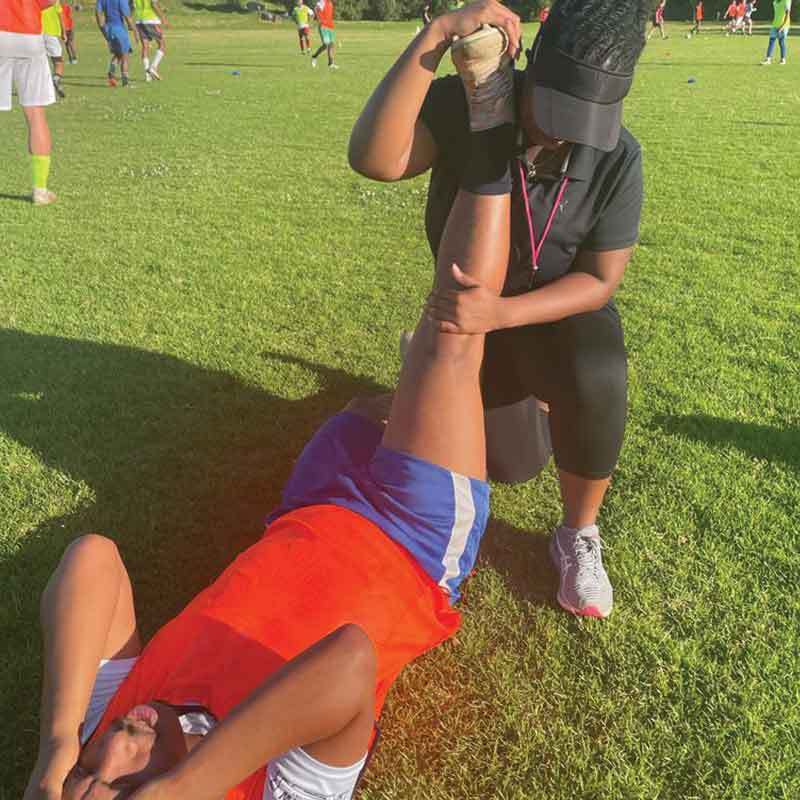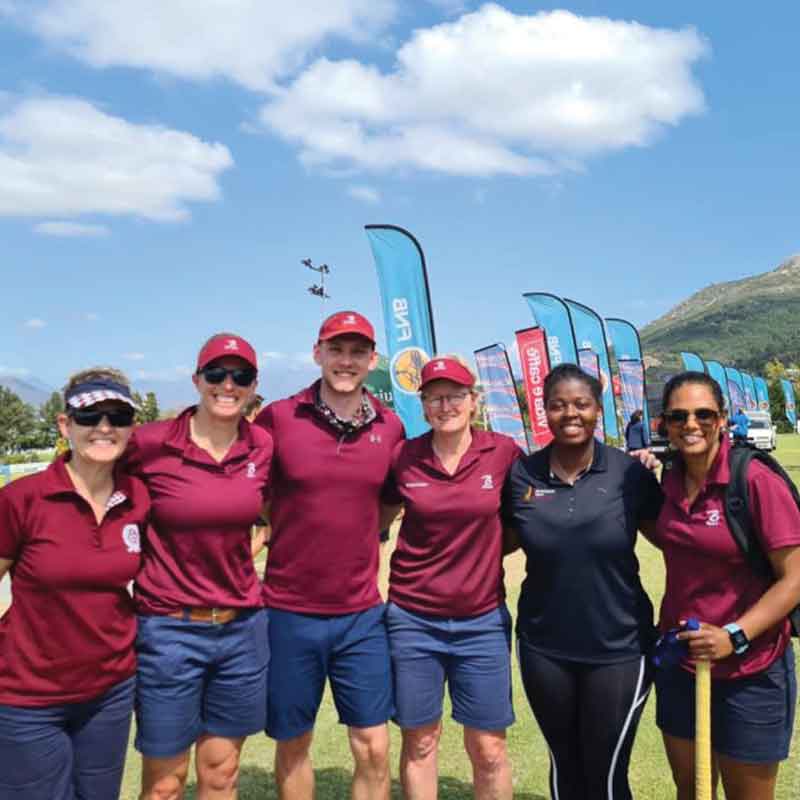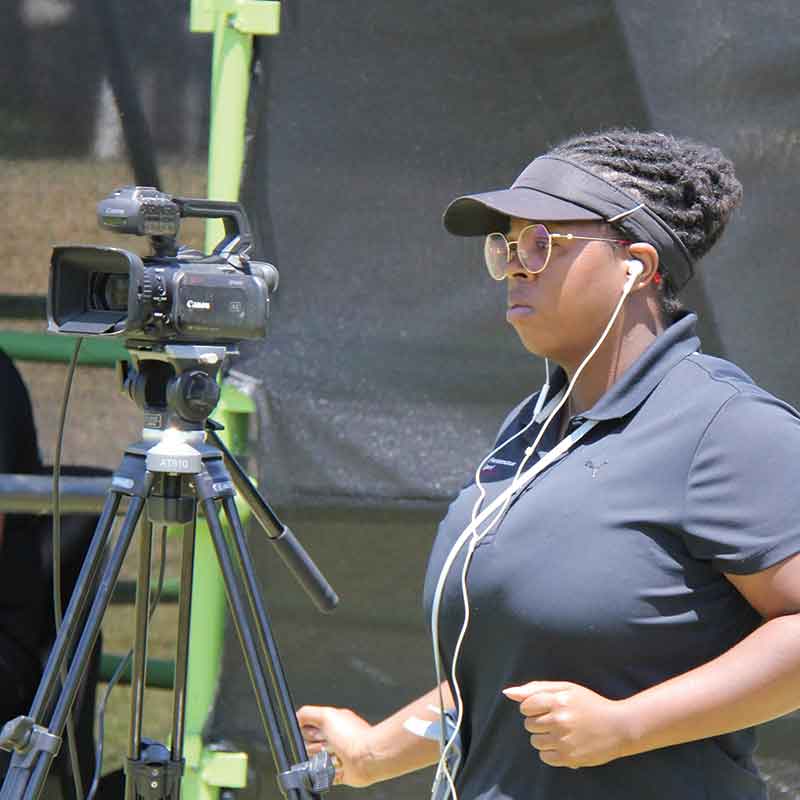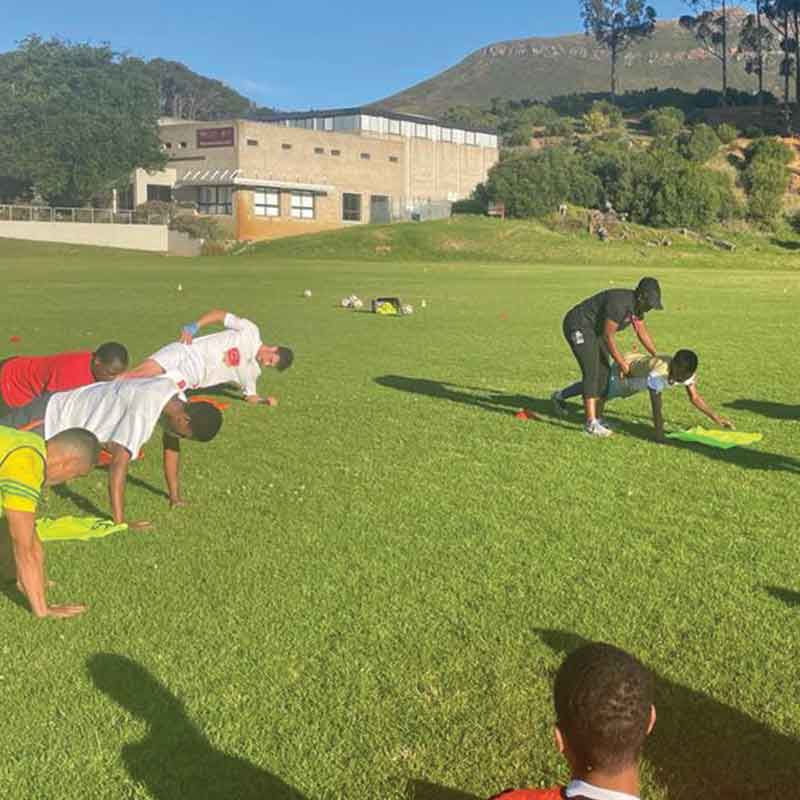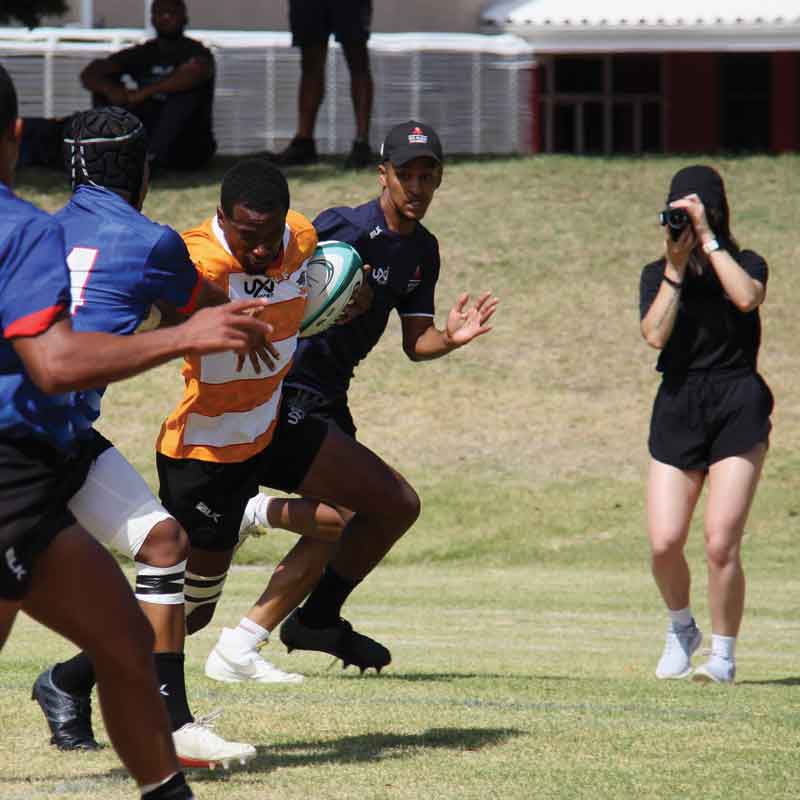Inclusive Sports Management: Embracing Diversity
- Driving Change: The Power of Diversity
- Breaking Down Barriers: Overcoming Challenges
- Inclusivity in Professional Sport
- The Ripple Effect: Beyond the Present UXi Sport
- The Role of Advocacy: Institute for Diversity and Ethics in Sports
- Final Thoughts: A United Call for Progress
The rallying cry to support diversity and inclusion is resonating louder than ever in the dynamic world of the sport industry. Diversity recognition involves more than simple deeds. It entails incorporating inclusivity into sports and fostering a climate in which anyone can succeed, regardless of background or identity.
Driving Change: The Power of Diversity
Sport diversity is about embracing the richness of different perspectives and experiences, not just checking boxes. People of various racial and ethnic backgrounds, genders, and sexual orientation must be found working together in the sport industry. This confluence of shared interests fosters innovation and gives sport new thoughts that help it advance.
A Tapestry of Perspectives
Diversity in sport is comparable to creating a colourful tapestry out of different viewpoints’ threads. It involves accepting people with various sexual orientations, racial, ethnic, and gender backgrounds. This diversity of backgrounds adds a vibrant fusion of insights, ideas, and new methods to the sport industry.
Fostering Innovation
In contrast to diversity, homogeneity breeds predictability. A diverse team offers a diverse range of solutions in sports management. When people with different life experiences work together, they bring new perspectives that push the envelope. This engaging exchange piques the imagination and inspires creative approaches that advance the sector.
Reflecting the Global Community
Sport is a global language that connects people from all continents and backgrounds. Sport organisations that value diversity reflect the inclusive culture of the sports sector as a whole. Sports fans from a variety of backgrounds devote their passions, time, and money to the sport, so it is crucial that the business reflects their reality. By doing this, it not only recognizes the diversity of the global community but also chimes with its universal principles.
Fueling Progress and Growth
Diversity is a driving force behind development and growth, not just a trendy word. Sport encourages diversity and gives underrepresented groups the tools they need to assume leadership positions in their surroundings. Sport acts as a catalyst for social and professional advancement by providing opportunities to people from a variety of backgrounds.
The Power of Transformation
Each component of a sport organisations’ mosaic adds to the overall picture. The sport benefits from a diverse team that embraces individuals with distinctive strengths and viewpoints. The power of diversity transforms not only sport organisations but the entire industry, giving it a competitive edge that is both inclusive and innovative.
Breaking Down Barriers: Overcoming Challenges
Even though improvements have been made, participation barriers still exist for underrepresented groups. These barriers must be removed in order to encourage diversity and inclusion. By identifying and removing obstacles to sports participation, we create opportunities for individuals from all backgrounds to succeed and assume participation and leadership roles in the sports industry.
Identifying Systemic Barriers
There are structural obstacles to diversity and inclusion in many facets of society, including sports. People from underrepresented groups are unable to access opportunities because of these obstacles, which include gender biases and racial disparities. Sport organisations need to be aware of these problems and commit to dismantling the structures that enable them.
Addressing Representation Gaps
One of the main issues is the lack of diversity in sporting organisations, especially in positions of leadership. The processes used in decision-making may unintentionally reinforce existing disparities when there is a lack of diversity in management positions. Making an effort to ensure that the leadership fairly represents the various communities that the sector serves is part of promoting diversity and inclusion.
Educating and Raising Awareness
Education and awareness-raising campaigns are crucial tools for removing barriers to inclusion and diversity. By encouraging a deeper comprehension of the issues and their effects, sport organisations can foster a supportive culture. This enlightenment motivates individuals to support diversity and promote change.
Inclusivity in Professional Sport
Diversity promotion extends beyond the field of play to include positions of leadership. By ensuring that people with diverse backgrounds are fairly represented in positions of decision-making in sport management, diversity is promoted.
Effective Representation
Beyond the athletes on the field, inclusivity permeates every aspect of the professional sports industry, including executive positions. Diversity in management positions not only reflects the larger community but also brings a variety of viewpoints to the table for decision-making. This diversity makes sure that strategies are thoughtful, nuanced, and sensitive to the needs of different societal groups.
Promoting Equality
In professional sports, inclusivity directly confronts historical inequities. It aims to address discrimination on the basis of race, gender, sexual preference, and other factors. Sport organisations must send a strong message that talent and potential, not predetermined characteristics, are the true metrics of success by tearing down barriers and advancing equality.
Supporting Change
The sport industry has a special opportunity to promote change, not just in their field but also in society at large. Athletes from different backgrounds serve as role models and advocates for inclusivity when they take the field. Their accomplishments and actions go beyond sports, motivating future generations to reject prejudice and value diversity.
A Ripple Effect of Positivity
Professional sports that are inclusive have an impact that goes beyond the playing field. When athletes from underrepresented groups succeed, their success serves as motivation for those facing comparable difficulties. This empowerment also applies to management positions, where people from different backgrounds shine as examples of what is possible for upcoming generations.
The Ripple Effect: Beyond the Present UXi Sport
The impact of diversity and inclusion in sports management reverberates far beyond the present moment. For example, when international rugby institutes like UXi Sport go above and beyond to create opportunities for underprivileged individuals, the effects ripple through generations, leaving a legacy of empowerment, possibility, and progress.
A Holistic Approach to Inclusivity
UXi Sport’s commitment to inclusivity is a testament to the transformative power of sports management. By providing pathways for underprivileged individuals to become professional rugby players while pursuing academic careers, they create a comprehensive ecosystem of support. This approach isn’t just about short-term success; it’s about empowering individuals to rewrite their life stories.
Unlocking Potential and Breaking Cycles
For underprivileged individuals, access to professional sports can seem like an unattainable dream. UXi Sport shatters this perception by offering a platform that not only nurtures their rugby talents but also supports their education. By breaking the cycle of limited opportunities, they empower individuals to create lasting change not only for themselves but for their families and communities as well.
Inclusive Programs for All
UXi Sport’s commitment to diversity and inclusion extends to women and young kids of all races. By offering programs that cater to a wide range of demographics, they ensure that inclusivity isn’t a mere slogan but a lived reality. These programs pave the way for young athletes to dream big and realise their potential, regardless of their background.
Empowering Women in Sport
In a traditionally male-dominated field, UXi Sport’s inclusion of women is a beacon of progress. By creating pathways for women in rugby and sports management, they challenge stereotypes and inspire young girls to see themselves as athletes and leaders. This empowerment extends beyond the playing field, influencing their confidence and aspirations in every aspect of life.
Shaping Future Generations
The ripple effect of UXi Sport’s inclusive initiatives extends to future generations. When underprivileged individuals succeed, they become role models and mentors for others facing similar challenges. These success stories inspire young kids to believe in themselves, work hard, and overcome obstacles. The legacy of inclusivity becomes a catalyst for continuous positive change.
The Heart of the Legacy
UXi Sport’s commitment to underprivileged individuals, women and young kids of all races is a testament to the heart of the legacy they’re building. By offering opportunities to individuals who might otherwise be overlooked, they create a ripple effect that touches lives, families, and communities. This legacy isn’t just about winning games; it’s about creating a world where potential knows no bounds and barriers are turned into stepping stones.
The Role of Advocacy: Institute for Diversity and Ethics in Sports
The Institute for Diversity and Ethics in Sports plays a crucial part in this transformation. They encourage discussions, research, and actions that move the sector toward a more inclusive future by promoting diversity inclusion in sports. Their initiatives strengthen the call for change, ensuring that the sector keeps developing.
Amplifying Awareness
The value of inclusion and diversity in the sport industry is promoted by advocacy groups like TIDES. They highlight inequalities, difficulties, and opportunities in sport organisations through research, writing, and public engagement. By bringing these issues to light, they stimulate debate and spur action.
Catalyzing Conversations
Organisations like TIDES use advocacy to start discussions that cut across boundaries. They create forums where the significance of diversity and equity in sports management can be openly discussed by involving stakeholders, from athletes to executives. These discussions expose biases, debunk myths, and advance understanding among participants.
Promoting best practices
Best practices for advancing diversity and inclusion in the sports industry are promoted by TIDES and similar organisations. They create frameworks, guidelines, and recommendations that sport organisations can use to foster more welcoming environments. These rules go beyond the playing field and provide guidance on hiring procedures, leadership diversity, and community involvement.
Driving Accountability
Sport organisations are held accountable by advocacy groups for their dedication to diversity and inclusion. They make sure that business leaders continue to be committed to fostering inclusivity by keeping track of progress, evaluating procedures, and highlighting gaps. This responsibility motivates ongoing efforts to handle problems and bring about change.
Motivating Change
Organisations like TIDES encourage change through their advocacy, not only for the industry but also for society. Their efforts serve as a reminder that sport can spur social change and that diverse representation is advantageous to all parties. The movement towards inclusivity is accelerated by their ability to have an impact on both public opinion and decision-makers.
Final Thoughts: A United Call for Progress
The sports industry cannot afford to ignore the ongoing journey towards diversity and inclusion in sport. It involves hiring practices that are inclusive of people of all races and genders, welcoming people from diverse backgrounds, and guaranteeing that everyone, regardless of identity, has a seat at the table. Sports management must build a vibrant, dynamic future that truly embodies the spirit of sport: togetherness, camaraderie, and shared passion by championing diversity and inclusion in sport organisations and management.
Industry Leaders as Catalysts
Sport industry leaders are in charge of bringing about change. Policy, practice, and culture can be shaped by administrators, executives, and sponsors. They set the tone for the entire industry by promoting diversity and inclusion in their organisations. Their dedication makes it abundantly clear that inclusivity is a fundamental requirement, not an option.
Educational Institutions and Academia
The next generation of sports professionals is nurtured in large part by academic institutions. By incorporating diversity and inclusion practices into sports management curricula, they give aspiring leaders the skills and knowledge necessary to build inclusive workplaces. These educational initiatives have an industry-wide impact and help to create a more inclusive future.
Athlete Advocacy and Influence
Athletes have a special platform that goes beyond the playing field. They serve as role models, motivators, and promoters of constructive change. Promoting diversity and inclusion is a powerful message that athletes can deliver to both fans and industry stakeholders. They encourage others to join the movement by amplifying the call for advancement.
Collaborations and Partnerships
The impact of the call for progress is increased through partnerships between sport organisations, advocacy groups, and community organisations. When various organisations work together, they pool their resources, knowledge, and networks to promote change. These collaborations establish a network of assistance that quickens the process of inclusivity.
Conclusion
The collective cry for advancement cuts across the divisions of sporting organisations; it strikes a chord in the hearts of spectators and athletes alike. It serves as a potent reminder that inclusion and diversity are fundamental components of the sports spirit, not just ideals to aspire to. The industry takes a giant step toward leaving a legacy that celebrates equality, embraces diversity, and fosters a sense of belonging for all as it comes together to answer this call.


